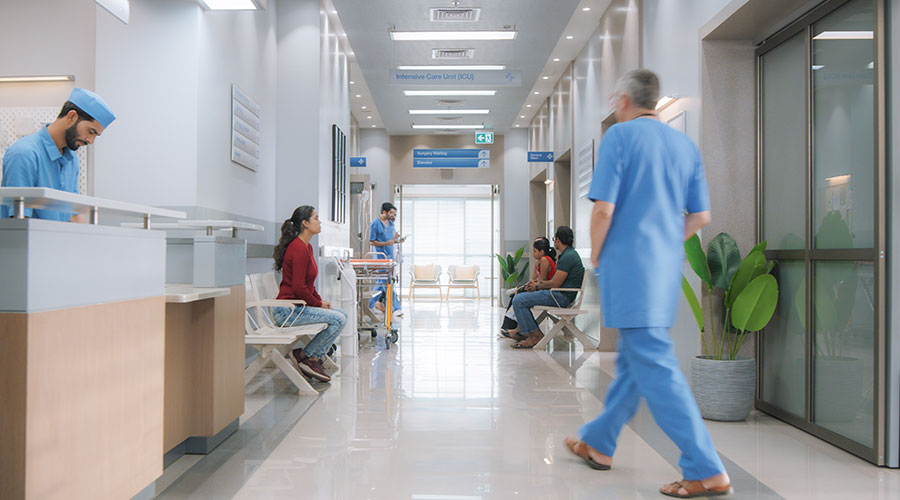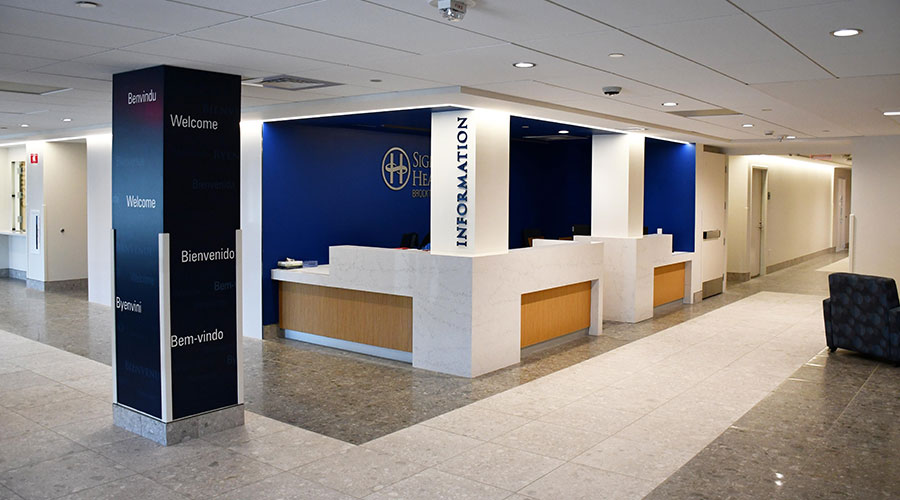As the nation approaches the two-year anniversary of the COVID-19 pandemic, many people are experiencing fatigue and frustration that the virus continues to spread and mutate despite pushes to get vaccinated and mask mandates. People said they are more worried about the impact of the most recent Omicron surge on their local hospitals but are less worried when it comes to their personal lives, according to a survey by KFF.
Many of those that are vaccinated have become infected with the Omicron variant. According to the survey, 23 percent of respondents said they have tested positive for COVID-19 at some point, though 16 percent said that their positive result came from an at-home test. Still, amid this most recent surge, six in ten who tried to buy an at-home COVID-19 test had difficulty in doing so. Meanwhile, about one-half of respondents said that there are not enough available tests in their area. At this stage in the pandemic, three in four respondents said that most adults will eventually get infected with COVID-19.
Even though cases are rising in many parts of the nation, some hospitals and healthcare facilities have begun changing their investigation efforts when it comes to the virus.
The Virginia Department of Health (VDH) announced last month that instead of attempting to investigate every case of COVID-19 and trace all contacts, it would focus on follow-up of outbreaks and cases in high-risk settings. The department says this response is more effective when a virus spreads quickly and many infected people do not have symptoms. The department will prioritize responding to outbreaks in long-term care facilities and other congregate settings, healthcare settings and other high-risk settings.
Meanwhile, home monitoring is helping break the digital divide by tracing COVID-19 infections among people who test positive for the virus but are not sick enough to be hospitalized. Research from the Washington University (WU) School of Medicine suggests that providing patients with the option to interact through traditional phone calls might still be necessary to ensure accessibility to communities who need it the most.
In this home monitoring program, patients had the option to receive daily monitoring via a phone call or by using an app on their phone. Every morning, patients either received a phone call or a push notification that prompted questions asking them about their temperature, how their cough is and if they have any shortness of breath.
“The home monitoring program allowed us to identify patients who really needed help right away,” says Thomas M. Maddox, professor of medicine at the WU School of Medicine, vice president of digital products and innovation at BJC Healthcare, the study’s senior author. “Without access to home monitoring, some of these patients may not have made it to the emergency room until they were a lot sicker, and more of them might have needed to be hospitalized.”
Mackenna Moralez is the assistant editor for Healthcare Facilities Today.

 Case Study: How NYU Langone Rebuilt for Resilience After Superstorm Sandy
Case Study: How NYU Langone Rebuilt for Resilience After Superstorm Sandy Frederick Health Hospital Faces 5 Lawsuits Following Ransomware Attack
Frederick Health Hospital Faces 5 Lawsuits Following Ransomware Attack Arkansas Methodist Medical Center and Baptist Memorial Health Care to Merge
Arkansas Methodist Medical Center and Baptist Memorial Health Care to Merge Ground Broken on Intermountain Saratoga Springs Multi-Specialty Clinic
Ground Broken on Intermountain Saratoga Springs Multi-Specialty Clinic Electrical Fire Tests Resilience of Massachusetts Hospital
Electrical Fire Tests Resilience of Massachusetts Hospital